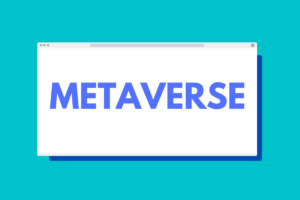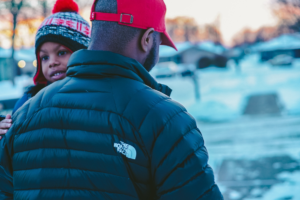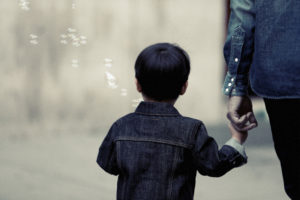What can I say? I love being the Habesha man I am today, but this wasn’t always the case. There was so much about my heritage that I really didn’t understand when I was young. There was so much I wasn’t really willing to learn about either. What so many foreigners and first generation Americans do is we try to assimilate. We try to blend in with those around us. I’ve learned over time that this is not the right way to live for me and possibly for you. To help you understand why I was not always proud of my Habesha-ness as a young child I have to take you back to my childhood days. My hope is you will understand growing up in America as a Habesha, Ethiopian or Eritrean or can be difficult and my goal is to explore ways to overcome those challenges.
When I was in grade school I distinctly remember the difficulties I faced with a last name foreign to everyone in each classroom. When the teacher would call attendance in the morning there would be a slight pause and a horrible, yet genuine attempt to pronounce my last name. This was every year and every class from Elementary school to High school. “Was it my problem that school teachers could not pronounce my last name?” This was a real thought in my head. Most of the other kids didn’t seem to have this problem except me and some of the other students with “funny” last names. I know my last name has 13 letters in it, but still, I’ve met many people in my life who had no issues pronouncing my last name.
“Was it my problem that school teachers could not pronounce my last name?”
Of course later in life I would realize this was in NO way my problem, but a lack of effort and preparation by my teachers. You see the reason why I say the problem was with the teachers is because they had the class attendance list before the first day of school along with our parents contact information. There was and is no excuse for any teacher to not at least make the effort to reach out and attempt to perfect the pronunciation of any student entering his or her class before the first day. I believe something as simple as this goes a long way to help all students feel welcomed, no matter their background.
Also, fellow Habesha parents if you have the opportunity to meet your child’s teachers before the first day of school then make it a point for the teachers to understand the importance of pronouncing your child’s name. This may not seem like a big deal, but I remember it was for me.
So there was that one challenge of growing up in America as Habesha. Another difficulty I remember facing was being teased by the other students. Coming from an African family I heard all the jokes of having no food or water, being skinny, and smelling like onions. For some time I was called “Starvin’ Marvin” by the other students in class. This was was the name of a fictional Ethiopian character from the show South Park. Without knowing the beauty and power of my Habesha culture I began to associate these terrible and childish insults with who I was and my heritage.
These were just some of the difficulties I and other students from the Habesha community faced growing up. Unfortunately, part of me believes the Habesha children across America still deal with the same challenges today. If you’re Habesha parents with children my advice is to instill in them that coming from Ethiopia and/or Eritrea is something to be proud of. That we have a rich culture and a history that speaks to greatness of our countries. Do not let any Habesha child grow up in America thinking they are any less than the white or black American kids they share classes with.
Do not let any Habesha child grow up in America thinking they are any less than the white or black American kids they share classes with.
What is the Habesha truth about growing up in America? It’s that you will always be challenged on who you are. America’s perception of you is what they see on the television and in the media. So our challenge is to break these false perceptions and show how strong we are as a people. Our strength is in our culture, history and unity.
Even if you don’t care about any of this I encourage you to embrace your obligation to your roots. An obligation to yourself to understand and learn the history of where your ancestors came from. In some ways know the past of your family is what helps you find the path of your future.
So my advice for the Habesha people growing up in America is to BE YOU. You must learn to appreciate your uniqueness and the beauty of your heritage. Many times other kids and adults tease and mock us simply because of ignorance. Now that I’m in my 30s I love when someone sees my last name and pauses. I use that moment as a teaching moment to share with them my Ethiopian and Eritrean heritage. Every person leaves with more respect for me and my background.
BE YOU
As someone with roots in Ethiopia and Eritrea I am urging you to embrace being Habesha, American, Ethiopian, Eritrean or a combination of any. Those of us growing up in America are a unique and special part of the Habesha community worldwide. It would be a shame to neglect our heritage and our roots and keep the world from experiencing one of the most beautiful and powerful cultures to ever exist.


